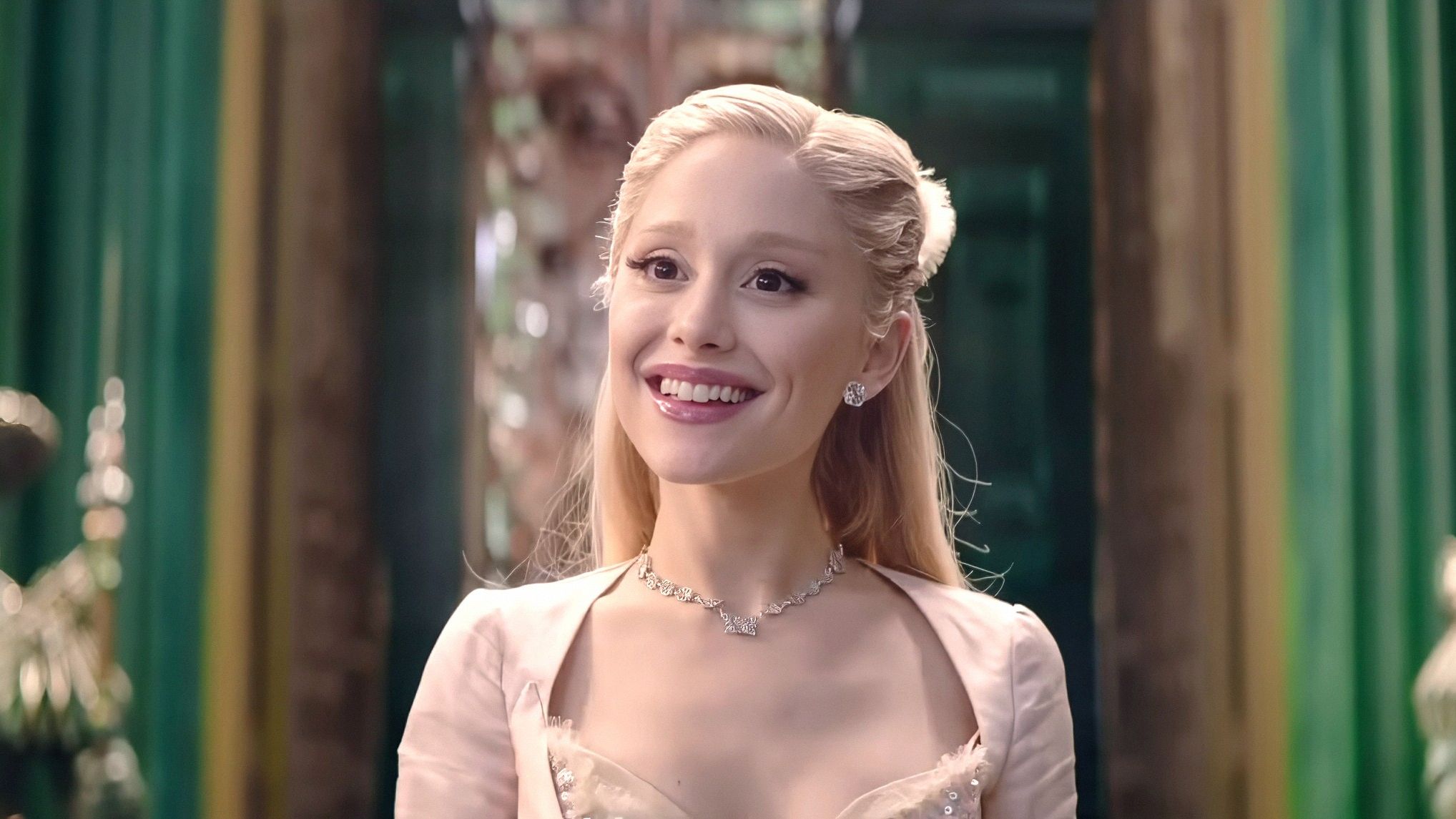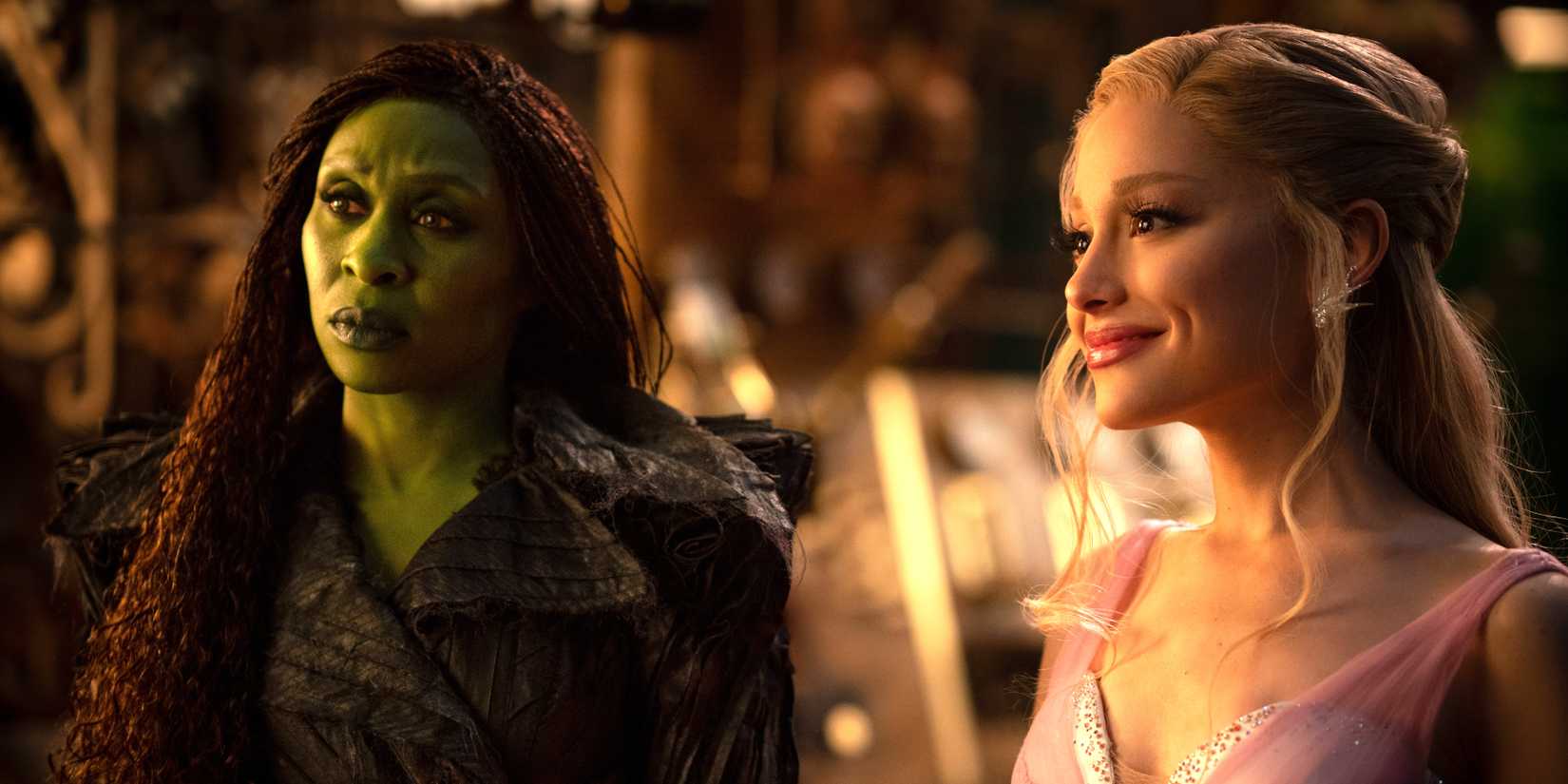
Be warned, this contains spoilers for Wicked: For Good. The movie’s ending closely follows the original stage musical. In a final confrontation with Dorothy, Elphaba fakes her own death, letting everyone believe the story that water can destroy her. She then runs off to live happily ever after with Fiyero, whom she previously transformed into the Scarecrow. Meanwhile, the Wizard flies away in his balloon, leaving Glinda to take charge and lead Oz towards a better future after arresting Madame Morrible.
The movie ends with a subtle but powerful moment. Though Glinda and Elphaba are apart, clever editing suggests they share a connection, as they simultaneously think of each other. As a brief part of their song, “For Good,” plays, Glinda’s magical book, the Grimmerie, unexpectedly opens and seems to turn to a specific page.
It’s tempting to see this as a strategic move to create a separate story focused on Glinda and starring Ariana Grande, or perhaps set up a third Wicked movie. However, this decision is actually quite meaningful and gets to the core of what Jon M. Chu is trying to explore with these films.
Wicked: For Good Giving Glinda Magic Makes Its Most Moving Song Even More Meaningful
 Image via Universal Pictures
Image via Universal Pictures
The Grimmerie, as detailed in Wicked: Part 1, is a very powerful spellbook written in an ancient Ozian language that is incredibly difficult to understand – even skilled magic users can only translate a few words. A prophecy foretold that whoever could read the Grimmerie would bring magic back to Oz. The Wizard, who came to Oz by hot air balloon, was originally believed to be that person, but it’s actually Elphaba who holds the key.
The book magically opens to the spell she needs whenever she tries to do something with magic, though the results aren’t always what she expects. She can read the spell’s words and cast it successfully by speaking them, but she doesn’t understand their meaning – she simply recites them. While Elphaba is talented, the movie implies the book makes its spells understandable to her, rather than her naturally knowing the magical language.
When the book opens for Glinda, it suggests she can finally read it, meaning her dream of becoming magical is at last coming true.
This changes our understanding of magic in Oz. Madame Morrible firmly believes people are either born with magical ability or they aren’t, and the movie Wicked: For Good largely supports that idea. Even the theory that Elphaba’s powers come from her unique parentage fits into this way of thinking.
What I really appreciated about this story is how it reframes magic – it’s not something you’re born with, but something you earn. The idea that anyone can be ready for true power, like accessing the Grimmerie, is a powerful shift. It means Elphaba’s abilities weren’t about who her parents were, but about her own inner strength. And that leads to a fascinating point: the Wizard and Morrible weren’t blocked from this power, they simply weren’t the right kind of people to use it responsibly. They had the potential, but they actively chose a different, darker route.
Glinda’s return to the song “For Good” highlights how much she’s changed since becoming friends with Elphaba. The musical Wicked shows that a truly powerful friendship can not only improve you, but can even unlock something magical within you.
Read More
- All Golden Ball Locations in Yakuza Kiwami 3 & Dark Ties
- NBA 2K26 Season 5 Adds College Themed Content
- Hollywood is using “bounty hunters” to track AI companies misusing IP
- What time is the Single’s Inferno Season 5 reunion on Netflix?
- BREAKING: Paramount Counters Netflix With $108B Hostile Takeover Bid for Warner Bros. Discovery
- Elder Scrolls 6 Has to Overcome an RPG Problem That Bethesda Has Made With Recent Games
- Mario Tennis Fever Review: Game, Set, Match
- EUR INR PREDICTION
- All Itzaland Animal Locations in Infinity Nikki
- Heated Rivalry Adapts the Book’s Sex Scenes Beat by Beat
2025-11-22 16:00